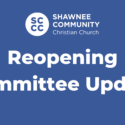a little r & r

How telling! Black History Month is given the shortest month of the year, February! I think it’s telling because the issue of race is like a scar a kid gets on their knee falling from their bike which time never erases, but we pretend isn’t really there.
Our nation’s brilliant founders, all white, fell in 1789 when they inserted into our nation’s Constitution that Negroes were 3/5’s a person. How they came up with that fraction I’ve never understood, except it captured the dehumanizing of Blacks starting with their first appearance on slave ships at Jamestown, America’s first settlement. But it’s a scar that America likes to pretend isn’t there. So, Black History Month gets the shortest of the twelve months to keep up the pretense that racism isn’t a problem in our country but is easily sloughed off or ignored.
I have participated in this pretense. Like countless people I thought when Barack Obama became President, we Americans had outgrown the scar. I never thought a Black person would ever be elected to the highest office in the land in my lifetime. Hope peeked through.
But the scar had never really disappeared. The Southern Poverty Law Center, which tracks hate crimes across the United States, has shown a steep increase in such crimes toward not only Blacks but also against Jews, Gays, Lesbians, Asians, Latinx, Native Americans, and women since 2008. Epithets like “White Supremacists” and “White Nationalists” along with “Homophobes,” and “Feminazis” have sprung up all over the country, not just in the South. The scar keeps growing.
When I think of racists and bigots I think of extremists and wipe my brow saying to myself, “Thank God, I’m not one of them!” But then…
One requirement for all ministers of the Christian Church (Disciples of Christ) to retain their standing in our denomination is to attend an Anti-Racism, Pro Reconciliation Work Shop every 3 years or to do some form of continuing education on the subject. René and I attended a workshop in Boise, Idaho, and more recently participated in book studies on racism.
I still remember from Boise an exercise in which all of us, Black & White, lined up at the end of the room. We were then asked questions, which if we answered “NO” to, meant we could keep moving forward across the room. Those who answered “YES” remained where they were standing. Questions included:
-Have you ever had anyone use a racial slur against you?
-Have you ever been stopped by a police officer, who referred to your skin color or race?
-Have you ever gone to a card shop and found it difficult to find a greeting card fitting for your culture or race?
-Have you ever had to have a parent or an elder give you a special talk about obstacles you may have to face because of your race?
Though the list of questions was much longer, it was clear that we who are white had few if any obstacles moving forward. But when we turned around to see who had not advanced, they were all people of color. It was truly a revelatory moment for me. Things we whites can take for granted people of color can’t. Obstacles to their progress stand in their way. The exercise revealed how oblivious we whites can be to obstacles blacks have to deal with every day.
Reading about race in America has only reinforced this sense of how deeply racial prejudice has scarred our land and my own thinking. Contributing to these scars aren’t just macro-aggressions and microaggressions against black people and other victims of prejudice, but the way the invisible hand of systemic racism remains in effect. Recently this systemic racism has moved center stage with the percentage of people of color and other minorities having higher death rates due to COVID, lower vaccination rates, higher rates of victimization due to attempts at voter suppression, and higher exposure to potential illness since so many people from minority populations work service jobs that aren’t considered worthy of higher priority for vaccination. Service line workers can’t work from home. Unless we make a concerted effort to educate ourselves about how systemic racism is woven into our national fabric the easier it is to ignore the scar.
For this reason, I am including a bibliography of books, which can open our eyes to seeing the scar that has only deepened in our society over this century. I can assert without reservation, that it has been through such reading I have come to the conclusion I am far more racist than I ever thought or believed. This bibliography takes seriously Jeremiah 5:21, “None are so blind who will not see.” Willful ignorance may well be the greatest social sin of our time. Preserving democracy requires a well-informed electorate, whatever a person’s political affiliation.
This reading list is not comprehensive, but it is a start.
Anderson, Carol, One Person, No Vote: How Voter Suppression is Destroying Our
Democracy.
Anderson, Carol, White Rage
Coates, Ta-Nehisi, We Were Eight Years in Power: An American Tragedy
DiAngelo, Robin, White Fragility: Why It’s So Hard for White People to Talk About Racism
Kendi, Ibram X., How To Be an Anti-Racist
Kendi, Ibram X., Stamped from the Beginning: The Definitive History of Racist Ideas in
America. (Considered by many the definitive history of race and racism in the United
States. Can be found in an abridged version for youth & adults.)
Wilkerson, Isabel, Caste: The Origin of Our Discontents.
Happy Reading!
Rick



